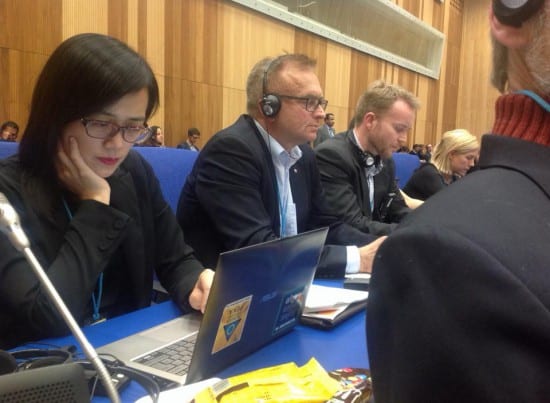As President of IOGT International it was my pleasure and privilege to present the statement to the 57th Session of the Commission on Narcotic Drugs (CND 2014) just a few moments ago. Below you can read it. Feel free to comment and share your thoughts.
Statement submitted by IOGT International to the United Nations Commission on Narcotic Drugs Fifty-seventh session, Plenary, Eight meeting, Vienna 18 March 2014
Chairman, Distinguised Delegates, Ladies and gentlemen,
This week, as the United Nation’s Fifty-seventh session of the Commission on Narcotic Drugs taking place in Vienna, a new drug policy platform, Drug Policy Futures, today formally has been launched.
Drug Policy Futures is a new coalition of organizations including IOGT International, representing over 35 organisations from 21 countries and 5 continents. In addition, we have regional and global partners that represent a large number of organisations across the world.
Drug use is a risk factor for a wide range of negative outcomes including mental and other illnesses, school dropout and academic failure, road accidents, unemployment, low life-satisfaction and relationship problems. Drug use and other social and health problems are intertwined so that drug use is associated with and commonly exacerbates other problems.
The first task of a public health-oriented drug policy is to prevent drug-related problems from occurring. Environmental strategies that discourage drug use and reduce the availability of illegal drugs are a central element of prevention. Community-based strategies that promote drug-free environments and supportive social norms are shown to reduce the use of both legal and illegal substances. Environmental strategies should be supplemented by education and evidence-based prevention as well as more targeted interventions that reach high-risk groups and problem drug users.
Drug use is particularly harmful to youth. Drug use usually begins in adolescence, making youth the major target for prevention. Drug related harm affects all regions of the world.
Drug use does not only affect the drug user. Often, family and friends are the first to experience the problems caused by drug use. In addition drug use has serious consequences for society as a whole, e.g. in the workplace, schools, on the roads, in the criminal justice system and in the health and social services.There is a need for a comprehensive approach to drug-related harm, with a strong focus on prevention and early intervention, as well as control measures, health services, treatment and rehabilitation for users.
Drug problems are particularly intractable in the nexus of mental health problems, crime, deprivation and social exclusion. Problem drug users often need comprehensive services including health, housing, education and work. The essential point here is that drug addiction is not only a health problem nor only a crime problem.
IOGT International believe that recovery is the best way for individuals who have developed drug-related problems to minimize their risk of further consequences, to enable them to function effectively in society, to take part in education, work or other activities, to mend the relationships with their families and to empower them to take control of their own lives.
Alternative sanctions that require enforced abstinence, but also reduce the use of imprisonment for drug-related offenses should be developed, e.g. Drug Treatment Courts. Instead of being an obstacle to recovery, the criminal justice system should become a powerful engine of recovery. Alternative sanctions should empower people to become drug-free, crime-free and integrated members of society.
To promote public health and public safety it is essential that governments adhere to the three main drug control treaties of 1961, 1971, and 1988, as well as the Convention of the Rights of the Child. We believe that the UN drug treaties provide the best framework for reducing nonmedical drug use and its many negative consequences.
IOGT International urges all member states to recognize that these treaties create a solid foundation on which to build future drug policy innovations. Yes, we need alternatives, but we don’t need to create a public health and safety disaster through legalization. Indeed, we can do much, much better.
Sven-Olov Carlsson
International President, IOGT International”


A timely, balanced and strongly needed statement of behalf of many NGOs all over the world, far beyond the ranks of IOGT International. And most of all, a very ambitious approach to drug prevention as well as to treatment and recovery. In drug policies we must go for nothing less than the best.